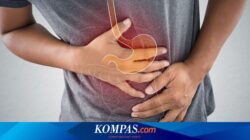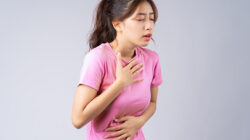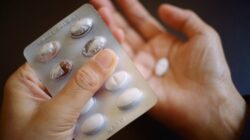Food allergy medications, such as antihistamines or adrenaline, are needed when allergy symptoms appear. In addition to dealing with discomfort, this food allergy medication also aims to prevent severe symptoms or life-threatening reactions.
A food allergy is a condition in which the immune system reacts after eating certain foods. This allergic reaction can vary from person to person, ranging from indigestion, itching or swelling of the airways, even life-threatening anaphylaxis.

This allergy generally affects infants and children under the age of 5 years, but can occur at any age. In fact, a person can suffer from food allergies, even though years before they could eat these foods without problems.
To prevent this, you need to know what foods can trigger allergies and stay away from them, and have a supply of food allergy medications, both over-the-counter and prescribed by a doctor.
Food Allergy Triggers
Any food can be the cause of this allergy. However, there are several types of food that are the most common triggers of food allergic reactions, namely:
If you have a food allergy, be sure to avoid a variety of trigger foods and check the ingredients for each food you eat.
Food Allergy Medications You Need to Know
There are two types of food allergy medications to reduce the symptoms of an allergic reaction, namely antihistamines and adrenaline. Here is the explanation:
Antihistamines
For mild to severe allergic reactions, such as hives or nasal congestion, the food allergy medication used is an antihistamine. Antihistamines work by blocking the effects of histamine that trigger allergic reactions.
There are many antihistamines that can be used to treat food allergies, such as cetirizine, diphenhydramine, alimemazine, loratadine, and promethazine. If your child suffers from food allergies, consult a doctor first to find out which antihistamine is suitable for his health condition.
After taking antihistamines, avoid drinking alcoholic beverages as they can cause drowsiness, especially if you still have to drive or work. This food allergy medication can also cause dry mouth, nose, and throat.
Adrenaline (epinephrine)
The food allergy medication adrenaline is used to treat a severe allergic reaction or anaphylaxis. Anaphylaxis can occur within seconds or minutes of exposure to the allergen, and can worsen rapidly.
In an emergency, this food allergy medication is given by injection according to a doctor’s prescription. When injected, adrenaline will relieve anaphylaxis by reducing swelling in the throat, opening the airway, and maintaining heart function and blood pressure.
If you have a food allergy that is at high risk of causing anaphylaxis, be sure to consult your doctor for an automatic epinephrine injection and learn how to use it.
It is recommended that you get two injectable doses of epinephrine. This is because severe allergic reactions can recur and are unpredictable. Also, be sure to check the expiration date of your automatic epinephrine injection periodically.
What to Pay Attention to When You Have a Food Allergy
In addition to taking food allergy medication according to the allergic condition experienced, it is important to know the right prevention steps as well as what to do when allergies recur.
Here’s how to prevent a food allergic reaction from occurring:
- Pay attention to the packaging label or ask the seller about what ingredients are contained in the food you are going to consume
- Make sure the people around you know about your allergic condition, so they will be ready to help in case of an emergency
- Prepare your own supplies when traveling, so you are not tempted to buy food outside, which can prevent possible exposure to allergens
- Consult your pediatrician first before introducing your child to the eight food allergens that have been mentioned previously
When your body reacts to the food you eat, stop eating. Don’t try to determine if the food is allergic to you by eating more of it.
If you feel allergy symptoms after eating certain foods, see your doctor immediately for an examination and get food allergy medication. However, if a food allergy is accompanied by difficulty breathing, a severe drop in blood pressure, and a fast pulse, visit the nearest emergency room.











